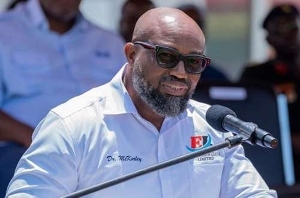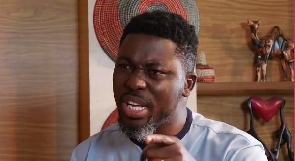Opinions of Saturday, 15 December 2018
Columnist: Raymond Sename Botwe
Education should not be only pursued in schools
I remember learning the definition of education in Citizenship Education class when I was in primary school. Education was defined as the process whereby we acquire knowledge and skills for the betterment of man and society as a whole.
Whilst this definition describes what education can be, it didn’t take into full accounts what education actually is. Some words were later added to this definition as I went up the academic ladder, but they were rather extraneous and the content of what the definition of education was in primary school was still the same as when I was in my final year Social Studies class in senior high school. Nothing had changed. The same definition pervaded all the levels of schooling.
But as always, some students would want to go about it their way to find multiple ways of expressing what education is. Sadly, any student who did this would be at the mercy of failing his or her exams or be derided as the insufferable know it all, “the too known”. This prosaic way of learning wasn’t just atypical for the definition of education. It was the same for the other subjects, including the STEM courses that thrived on the innovation of new ideas. Ingenuity was not encouraged. And barely did I feel that I was stepping out of my comfort zones to think outside the box and apply what I'd learned.
The Vision of the Ghana Ministry of Education says it wants to provide relevant education to all Ghanaians at all levels to enable them to acquire skills that will assist them to develop their potential in order to be productive, promotion of technology culture at all levels of society… With a goal that should be attained by 2020 being to [build] an educated, skilled and confident society, equipped with global competencies.
Although this is what it seeks to achieve, I believe we’ve totally digressed from achieving that aim. The Ghanaian educational system has over the years stressed on an examination based curriculum. Most students including myself studied and memorized some facts we sometimes barely understood for the sole purpose of passing an exam. Just get a book for previous exam questions and solve it in the hopes of the same questions repeating in the West African Senior School Examination(WASSCE). Most students would excel tremendously at these exams but in the long run, they would probably forget the materials they've learned. Rephrase the questions and most kids would fumble.
This problem of a lack of practical skills such as intellectual curiosity and critical thinking that are not being taught in school is a major cause of dissatisfaction. When most students graduate, barely do they feel the relevance of what they learned in school related to the work they’re doing. How is a lack of applicable knowledge and a lack of nurturing of talents relevant to the manpower needs of the nation? How is this equipping us for global competencies?
My experience as an international student at Columbia University can provide insight as to how less prepared the system of pedagogue makes its products. My experience in school has so far been one that I feel I have to put in the extra effort to keep up with my colleagues. It registered to me although that it was not a matter of natural aptitude but the degree of preparation which I received during my high school education, is subpar compared to theirs. An example is when in small class settings, we are to have discussions about readings we’ve done, It’s obvious I understood the readings, yet I found it hard to put my thoughts into words. With time and practice, however, I began to learn how to communicate effectively. I believe being able to communicate your thoughts into corrigible words is undeniably a very vital skill. Where otherwise in Ghana, the very smart ones are made to believe by their peers that, their silence is a true mark of a genius. My other Ghanaian friends at other schools have also shared a similar experience. I’ve been able to gain this skill of effective communication. What about other students who are not as fortunate as me to get this opportunity to experience a different system of education?
Knowing that education is one of the major contributors to economic growth. Since the economic growth depends on the intellects of its human resource, Ghana needs to have this realizing before it’s too late. We would still feel the need to ask foreign investors from other countries to fund our projects whilst we keep on paying their contractors with the investment we received from them. This creates a dependency culture and our quest for Ghana beyond Aid would forever be elusive.
Our leaders are aware of the state of our education, as the current deputy minister for education Dr Yaw Osei Adutwum admitted.
We need a well-structured education system that encourages both the studying of theory and its application. We need a school system that teaches its students very practical skills and encourages the nurturing of talents. Despite the fact that people would be of the assumption that since they are paying fees and most adolescents are spending about half of their 24 hour days in schools, it should be the responsibilities of the authorities. While some “measures” are being put in place, dependence on the leaders and school authorities to implement these changes might take too much time. What assurance do we have they would be carried to effect? Imagine the number of students who have to go through this system. A lot is at stake here.
Like one mother has taken the initiative to take educate her wards, we can do same to educate ourselves and wards to complement the education we are receiving in schools. Whilst this feat would be a challenging one when its gains are liberated it undoubtedly outweighs those gained in our traditional school system.












